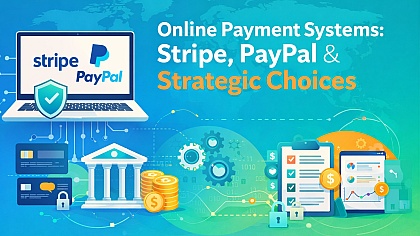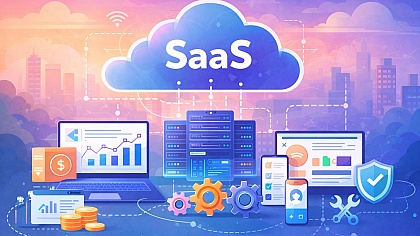
Power of Personalization in Enhancing Customer Engagement
In an era where digital interactions have become the norm, businesses are constantly searching for innovative ways to connect with their clients and stand out in a crowded marketplace.
Personalization has emerged as a powerful tool in this quest, offering a pathway to not only attract but also retain customers by delivering tailored experiences that meet their specific needs and preferences.
Understanding Personalization and Its Impact
Personalization involves using data and insights to craft customized experiences for each customer, making them feel recognized and valued. Understanding personalization and its impact is pivotal in today's digital marketing landscape, where the quest for customer attention is more competitive than ever. Personalization transcends traditional marketing by treating customers as individuals with unique preferences and needs. This approach leverages data analytics to deliver customized experiences, making interactions with brands more relevant and engaging.
The essence of personalization lies in its ability to make each customer feel recognized and valued, which in turn, fosters a deeper emotional connection with the brand. This connection is crucial for building trust and loyalty, which are key drivers of customer retention and advocacy. The impact of personalization extends beyond enhanced customer satisfaction; it significantly influences purchasing decisions, leading to increased conversion rates and revenue growth for businesses.
Moreover, in an environment saturated with generic content and impersonal interactions, personalization stands out as a beacon of relevance and consideration, setting the foundation for a new era of customer engagement where personalized experiences are not just preferred but expected. By understanding and embracing the power of personalization, businesses can unlock unprecedented levels of engagement and loyalty, securing their place in the hearts and minds of their customers.
The Role of Data in Crafting Personalized Experiences
At the heart of personalization lies the effective use of data. The role of data in crafting personalized experiences is central to the digital age's marketing paradigm, serving as the foundation upon which all tailored customer interactions are built by B2B marketing agencies. In an environment where consumers are bombarded with information, the ability of B2B marketing agencies to cut through the noise and speak directly to an individual’s preferences, needs, and behaviours is invaluable.
Data collection and analysis provide the insights necessary for this level of personalization, enabling businesses to understand their customers at a granular level. From browsing habits and purchase history to engagement patterns across various platforms, each data point offers a piece of the puzzle in predicting what will resonate most with each customer. However, the use of data extends beyond mere collection; it involves sophisticated analysis and the application of insights in real-time to create dynamic, personalized experiences that evolve with the customer’s changing needs and preferences.
This approach not only enhances the customer journey by making it more relevant and engaging but also drives business outcomes by increasing loyalty, conversion rates, and ultimately, revenue. As such, the role of data is not just operational but strategic, positioning it as a critical asset in the quest for competitive advantage through personalization.
Strategies for Effective Personalization
Implementing personalization requires a strategic approach, where businesses need to carefully consider how they collect, analyze, and apply data. Here are some strategies that can lead to successful personalization:
- Segmentation: Divide your customer base into smaller groups based on shared characteristics or behaviours. This enables you to craft messages that are more closely aligned with the needs of each segment.
- Dynamic Content: Utilize technology to dynamically change the content seen by users on websites or in emails based on their past interactions or preferences.
- Predictive Analytics: Leverage advanced analytics to predict future customer behaviour based on past data. This can help in anticipating needs and offering solutions before the customer even realizes they need them.
- Implement Feedback Loops: Establish mechanisms to collect and respond to customer feedback. This not only aids in refining personalization efforts but also makes customers feel their opinions are valued.
Personalization in Action - Real-World Examples
Many leading companies have successfully harnessed the power of personalization to enhance customer engagement:
- An e-commerce giant uses past purchase data and browsing history to recommend products, leading to increased sales and customer satisfaction.
- A streaming service offers personalized playlists and show recommendations, keeping users engaged and subscribed.
- A financial services company sends tailored financial advice and product recommendations to its clients, enhancing trust and loyalty.
The Benefits of Personalization
The benefits of personalization are manifold, impacting both the customer experience and the business bottom line:
- Increased Engagement: Personalized experiences are more engaging, leading to higher interaction rates across emails, websites, and other digital platforms.
- Higher Conversion Rates: Tailoring the marketing message to individual needs and preferences increases the likelihood of conversion.
- Enhanced Customer Loyalty: Personalized interactions foster a sense of being valued and understood, which can significantly boost customer loyalty.
- Competitive Advantage: In a market where consumers have endless choices, personalization can be a key differentiator.
Additionally, personalization facilitates better data insights. By understanding customer interactions and responses to personalized content, businesses can gain deeper insights into consumer behaviour. This knowledge allows for the continuous improvement of marketing strategies and product offerings, ensuring they remain relevant and appealing to the target audience. Thus, the cycle of personalization not only benefits the present but also shapes the future strategy, ensuring sustained growth and relevance in a rapidly evolving marketplace.
Overcoming Challenges in Personalization
While personalization offers significant benefits, it also comes with its challenges, such as data privacy concerns, the complexity of implementation, and the need for continuous optimization. Addressing these challenges requires a balanced approach, respecting customer privacy, investing in the right technology, and maintaining a commitment to ongoing improvement.
Looking Ahead
With the evolution of technology, the possibilities for personalization will also expand. Advances in AI and machine learning are set to offer even more sophisticated ways to understand and anticipate customer needs. Businesses that invest in personalization today will be well-positioned to lead in the customer engagement of tomorrow.
The power of personalization in enhancing customer engagement cannot be overstated. By leveraging data to understand and anticipate customer needs, businesses can create personalized experiences that resonate on a deeper level, fostering loyalty and driving growth. As we move forward, personalization will undoubtedly play an increasingly central role in the strategy of businesses seeking to thrive in the digital age.














